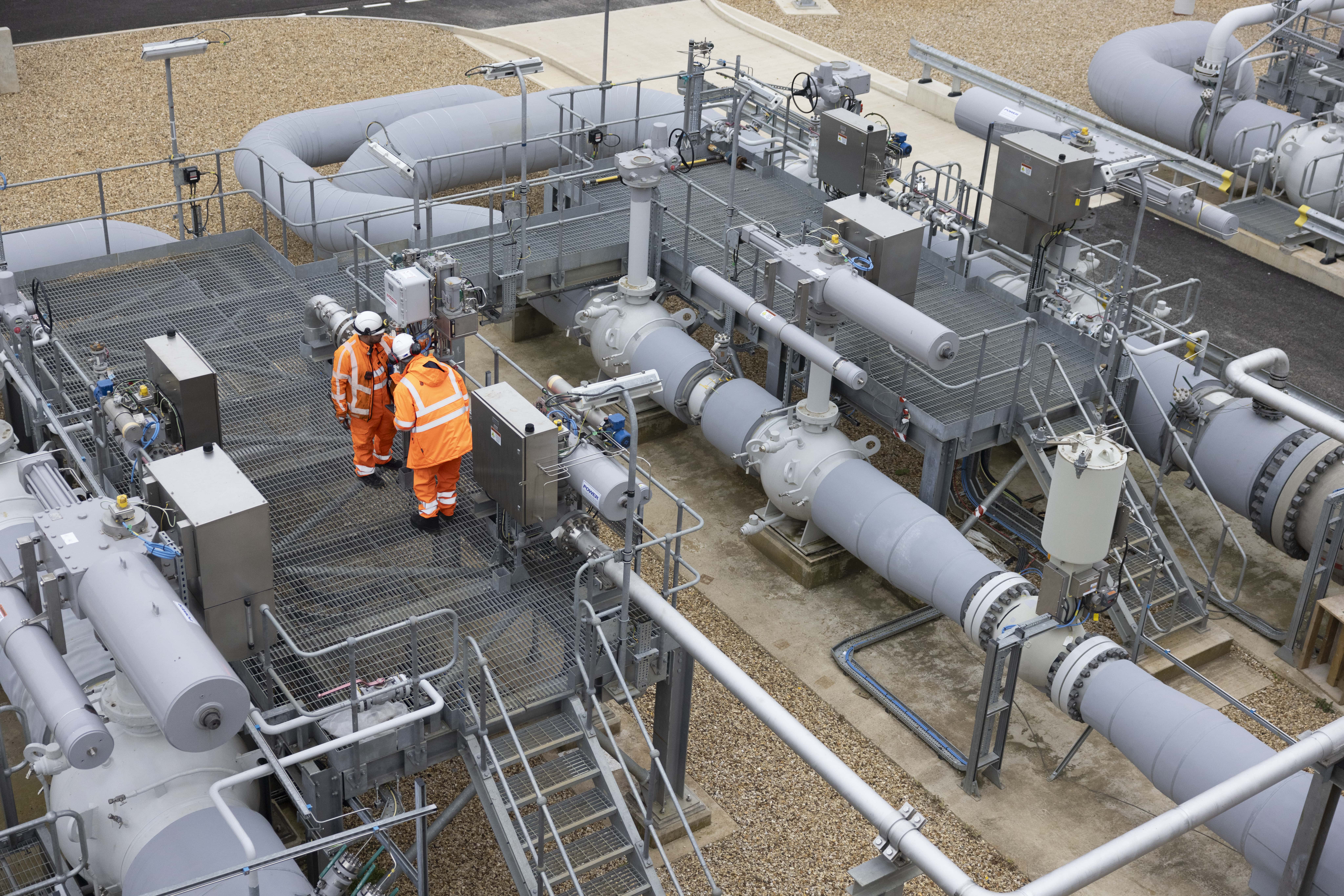Hatton Gas Compressor Station Upgrade

Construction projects
Hatton Compressor Station Upgrade
National Gas Transmission is installing a new compressor to replace two of the existing four compressors, in a currently unused part of our existing site at Hatton in Lincolnshire.
About the Hatton Gas Compressor Upgrade
The Hatton Gas Compressor Station is a key part of the UK's gas transmission network. Operated by National Gas, Hatton Compressor is a pivotal compressor station in the transmission of high East flows to the wider gas network. It also facilitates North to South flows and is critical to supplying natural gas to the South of the country and international exports to Europe.
Investment at Hatton was necessary to achieve Industrial Emission Directive (IED) compliance ahead of the extended limited life derogation (LLD) for the existing machinery by 31 March 2026. Construction of a new compressor unit (the largest of its type in the UK) began in 2023.
To create the space we need, we’ve cleared an area of vegetation ensuring we only remove what is needed. This was completed under the guidance of an ecologist and we’re keeping a screen of trees and bushes in place between the new compressor and the site boundary.
The two compressors we are replacing will be decommissioned and removed at a later date and will not continue to run.
We plan our work carefully to reduce any impacts on the local community and environment. During the work, our community relations team will be available to answer any questions.
What is happening now?
The new compressor has been approved by Ofgem and East Lindsey District Council has granted National Gas Transmission planning permission to do the work.
We started work in spring 2022 by removing some vegetation to the north of our site under the guidance of an ecologist only removing what is needed, leaving a vegetation screen in place at the site boundary.
To make up for the loss of this vegetation we'll be making improvements elsewhere on the site during the works. In addition, we are speaking with local landowners and nature conservation groups to see how we can support delivering biodiversity enhancement close to the site. We've worked to identify appropriate measures entering into binding agreements to deliver these so that local biodiversity achieves an overall gain from the project.
We are now moving into our testing and commissioning phase to ensure the new compressor is in good working order ahead of winter 2025.
What is a Gas compressor and why do we need it?
Gas compressors are part of our national gas transmission system which is important national infrastructure. They raise the pressure of the gas which is transported more efficiently around the country through the underground pipework, to where it is needed for use in our homes and businesses.
Some of the gas compressors at our site are more than 30 years old and National Gas must ensure the gas transmission network and equipment is kept updated and continues to operate reliably.
The new compressor will replace two of the existing four compressors helping us to run the system more efficiently and creating much lower emissions.
We have been working closely with Ofgem, our government regulator, and they have confirmed they support the need for this work.
Why are we still investing in gas?
We’re committed to reducing our own direct greenhouse gas emissions to net-zero by 2050, in line with the UK’s overall target. Replacing older gas compressors is one part of how we can do this as older equipment is efficient with higher emissions.
Gas underpins a clean energy future. It provides more than 80% of Britain’s homes and businesses with a secure and reliable source of heat and power. By delivering a reliable base to meet the nation’s energy demand, it enables increasing innovation and growth of cleaner, but more intermittent, renewable energy sources.
Redressing the balance between the amount of greenhouse gas emissions we produce and the amount we remove from the atmosphere, won't happen overnight.
Biodiversity and National Gas Transmission
National Gas Transmission is committed to deliver at least 10% Environmental Net Gain, meaning we will leave biodiversity, the natural environment and the benefits it provides e.g Carbon capture and storage, clean air, clean water, health and wellbeing benefits and more, in a better state than it was prior to our development.
To achieve this, we have completed a number of assessments to develop our understanding of the existing habitats within and surrounding our site that will be impacted by our development.
Based on those studies we will use the latest tools to develop ways to improve and enhance habitats and the local environment through our development
We will work closely with East Lindsey District Council environmental team, Natural England and other organisations to develop, agree and deliver our improvements.
Planning (Hazardous Substances) Application
Application for Hazardous Substances Consent, February 2023 (pdf)

